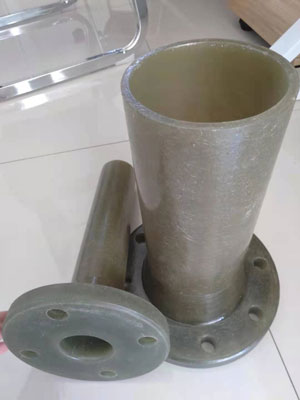When designing any Fiberglass Piping System, there are many important design considerations that are basic. For example, working temperature, operating environment or medium, pressure, vacuum and temperature are all key design aspects that need to be considered. Similarly, it is necessary to recognize the inter-connection and inter-connection relationship existing between pipelines, joints and fittings, as well as the level of human capital applied within the total pipeline system and performance range.
In some terms, no two fiberglass piping systems are the same. The quality of glass fiber materials is largely related to the professional knowledge, experience, technical knowledge and skills of a given labor force. In this case, we call resins and adhesives the main materials. The main conclusion of this article is that it is assumed that there is a positive correlation between the performance of the joint or piping system and whether it is correctly manufactured/finished. For example, for welding or bonding joints, there are some important considerations that will ultimately affect the end user's product. Factors that need to be considered include the correct mixing of adhesives or resins, proper preparation of the joints, curing conditions, appropriately trained personnel,

Fiberglass Piping
The other main conclusion of this article is that in many ways, the use of Fiberglass is an art. This art or acquired skill is based on an understanding of science, technology, and materials, and is subject to concepts such as conventional standards, human capital investment, and precision. It can be inferred that without strict understanding and compliance with standards, there will be no artistic or high-quality products.
In other words, for obtaining the best performance of glass Fiber Materials, the most important thing is to understand the basic concepts of human capital investment, or increase the labor force as a production factor in proportion to the resources invested. The Beatles invested a lot of money in human capital and created a learning culture, which is one of our competitive advantages. We have a high level of expertise in all stages of the manufacturing process. This basic method of providing the best training and education for our team has developed a forward-looking technical culture of highly skilled workers. More importantly, it helps to improve the quality of our accessories and joints.